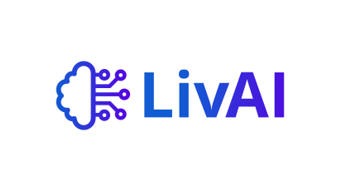- According to the latest OECD report, 18% of them have experimented with the technology within a year of its public release.
- Perceptions on Generative AI have varied between management and employees, with 62% of executives seeing more benefits than risks, while 48% of employees have held the opposite view.
- SMEs have implemented limited systematic cybersecurity measures, as 44% of respondents implementing a maximum of two cybersecurity measures.
Brussels, 29/04. SMEs are rapidly adopting «Generative AI» services, with nearly 18% companies surveyed have experimented with the tool less than a year after its public launch. This is one of the findings from the latest OECD report ‘SME digitalisation 2024, Managing shocks and transitions’, which sheds light on the latest trends in digital adoption by SMEs, provides information on digital practices and the adoption of Artificial Intelligence applications. This is very much in line with the objectives of the LivAI project, which seeks to contribute to the ethical digital advancement of European communities through the creation of educational resources on artificial intelligence for adults.
The survey was conducted among SMEs in seven OECD countries (France, Germany, Italy, Japan, Korea, Spain, France, Italy, Japan, Spain and the United States). Furthermore, considering the low barriers to entry and the need for technical expertise to start using these applications, 57% of the companies surveyed perceive more opportunities than risks in the use of generative AI. 62% of respondents in managerial positions consider that the advantages of using this technology outweigh the risks. In contrast, 48% of employees consider the opposite to be true.
In terms of education, among the companies surveyed, digital learning is most prevalent at work. On the one hand, only 9% of SMEs use online platforms to structure their digitization efforts. On the other, 34% favor manager-led digital learning for employees.
In terms of security, the adoption of cybersecurity measures is often piecemeal, with 44% of respondents having a maximum of two cybersecurity measures in place.
Therefore, the report’s findings point out that, despite the fact that most SMEs already use data collected and analyzed by software in their decision-making processes, they are now rapidly adopting digital technologies, including cutting-edge Generative AI, to reach new customers and improve productivity.
In addition, beyond the initial impression generated by this data, it could also indicate a lack of awareness of the risks, as well as a lack of consultation with experts or advisors in companies or organizations. Obstacles to digital adoption and implementation of AI are highlighted, compounded by low public awareness and even acceptance. This highlights the need for better implementation and coordination of public policies in this regard.
About the OECD
The Organisation for Economic Co-operation and Development (OECD) is an international organization committed to shaping better policies for better lives. With 60 years of experience and insights, the OECD works collaboratively with governments, policymakers, and citizens to address a wide range of social, economic, and environmental challenges.
About LivAi
The LivAI project is funded by the Erasmus+ programme and has a budget of €250,000. It aims to provide the necessary strategies and methods to integrate AI and new technologies into education, helping educators and adults in the technological transition.



